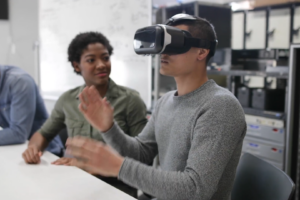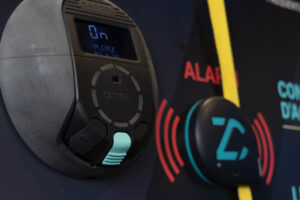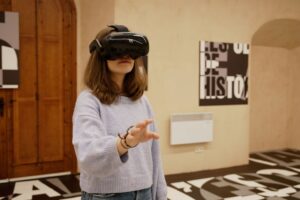
SaCoAV: Methods and Tools to Improve the Safety and Coordination of Autonomous Vehicles
May 6, 2025
Odour Recognition with AI in Embedded Devices
May 12, 202508/05/2025
The Center for Technological Innovation in Static Converters and Drives (CITCEA) at the Universitat Politècnica de Catalunya – BarcelonaTech (UPC) has designed a smart wireless application developed to optimise the electricity consumption of high-power devices.
Electricity costs are an increasing concern for many consumers, especially in the context of highly volatile electricity prices. 86% of consumers consider their electricity bills excessively high, and energy consumption remains one of the main sources of global emissions. Moreover, the rise in global temperatures, up 1.8 °C in 2023, highlights the urgent need to reduce CO₂ emissions and implement more energy-efficient solutions. In this context, it is crucial to develop tools that help minimize these costs while contributing to energy sustainability.
OCEAN was developed in this framework: a smart system that automatically optimises and manages the electricity consumption of high-power devices such as water heaters, pool pumps, or electric vehicles across municipalities, industries, buildings, and households. The application allows users to tailor consumption to their preferences, maximizing savings while reducing CO₂ emissions. With a "Plug and Play" solution, the application easily integrates into existing systems and provides efficient energy management, whether the goal is to reduce costs, emissions, or both.
For example, when it comes to pool pumps, users can decide how long they want the pump to run, and OCEAN takes care of operating it during optimal hours. For electric water heaters, the user can set time windows when they plan to shower, and the system ensures hot water is ready at that time, heating it during the most cost-effective or lowest-emission hours, depending on the user’s selection. For electric vehicle chargers, the user can choose the desired charge level and completion time, and OCEAN optimises the process by charging the vehicle during the cheapest and cleanest hours.
OCEAN offers 3 service options:
- OCEAN Integration: Integration of OCEAN into the consumer’s existing IoT product platform.
- OCEAN Hardware: Customized hardware solutions for consumers who prefer not to modify their software.
- OCEAN Redesign: Hardware redesign to make it IoT-compatible.
Impact
OCEAN has a direct impact on reducing energy costs and CO₂ emissions. It targets end users, manufacturers of pool pumps and electric water heaters (EWH), municipalities with public pools, and industries with high water consumption. It also addresses electric vehicle (EV) charging points.
In the case of residential pool pumps, users have achieved a 67% cost reduction, along with an average 11% drop in emissions. Meanwhile, households with electric water heaters have seen an average 30% savings on their electricity bills, optimizing consumption and contributing to a more sustainable future.

You want to know more?
Related Projects
- The Image and Video Processing Group (GPI), part of the IDEAI-UPC research group, and the Digital Culture and Creative Technologies Research Group (DiCode) from the Image Processing and Multimedia Technology Center (CITM) at the Universitat Politècnica de Catalunya – BarcelonaTech (UPC), have co-organised the AI and Music Festival (S+T+ARTS) together with Sónar+D and Betevé, to explore the creative use of artificial intelligence in music.
- The Visualisation, Virtual Reality and Graphic Interaction Research Group (ViRVIG) at the Universitat Politècnica de Catalunya - BarcelonaTech (UPC) has participated in the XR4ED project, an initiative that connects the educational technology (EdTech) and Extended Reality (XR) sectors, with the aim of transforming learning and training across Europe.
- The inLab FIB at the UPC has collaborated with Lizcore® for the development of a proof of concept based on artificial intelligence to improve safety in climbing with autobelay devices. The system allows the automatic and accurate detection of risk situations before starting a route.
- Researchers from the Centre for Image and Multimedia Technology of the UPC (CITM) and from the DiCode research group (Digital Culture and Creative Technologies Research Group) of the Universitat Politècnica de Catalunya – BarcelonaTech (UPC) have worked on the project The Eyes of History, an initiative of the Catalan Agency for Cultural Heritage that offers an immersive view of Catalan cultural heritage. It is especially aimed at the first and second cycles of secondary education and was created to bring heritage into the classroom. Its goal is to bring the history and monuments of Catalonia closer in a vivid and innovative way, using tools such as virtual reality and new museographic narratives.




